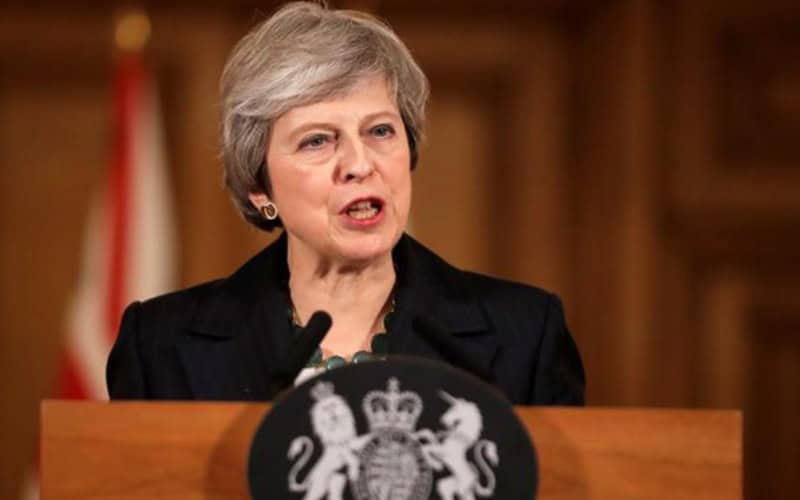London: British Prime Minister Theresa May will not seek a long delay to the Brexit process when she asks European Union leaders for more time to secure Parliament’s backing for a withdrawal deal, which has twice rejected her current proposal, a government official said on Wednesday.
A Downing Street source said May shared public exasperation at the prospect of a lengthy Brexit delay, reported Efe news.
“The PM won’t be asking for a long extension,” the source said. “There is a case for giving Parliament a bit more time to agree a way forward, but the people have been waiting for three years now. They are fed up with Parliament’s failure to take a decision and the PM shares their frustration.”
May’s previous two attempts to push her Conservative Party minority government’s withdrawal agreement through the House of Commons, the lower chamber, have failed — the first by a historic majority and the second by the fourth-largest majority in Parliament’s history.
Lawmakers later passed an amendment compelling May to request an extension to the negotiation, which had been due to wrap up by March 29, the official Brexit date set by Article 50 of the Lisbon Treaty, the mechanism to leave the bloc.
In a thinly veiled warning to hardline Conservatives, who by and large oppose the government’s Brexit plan, May warned that failure to back her deal could result in an extended delay that could ultimately see the UK take part in the European Parliamentary elections on May 22 and could also lead to no Brexit at all.
May’s endeavour to jam the deal through the House a third time was scuppered by Speaker John Bercow. The Speaker on Monday drew on a 400-year-old guideline preventing a government from pressing lawmakers to vote repeatedly on the same policy unless it contained substantial changes.
The EU leaders have said they would only ratify the extensions if the UK government included fresh proposals. All 27 remaining EU states will vote on the proposed extension.
France has said it would be willing to veto a delay only if it had an “objective and strategy.”
The announcement that May would only seek a brief extension, then, could raise eyebrows in Brussels.
Speaking to German radio on Wednesday, European Commission President Jean-Claude Juncker said he did not believe a specific date for the delay would be agreed on during a European Council summit, taking place on March 21-22.
May’s next moves depend on how the EU responds to her request, which she was due to submit to European Council President Donald Tusk.
On March 14, Tusks said he would ask EU leaders at the summit to get behind a long Brexit extension.
Anti-Brexit leaders in the UK, however, have accused May of trying to appease hardline members of her own party.
“The question is how long the so-called moderates in her own party are going to allow this pandering to the hardliners,” Nicola Sturgeon, Scotland’s first minister and leader of the pro-independence Scottish National Party, said on Twitter.
May has struggled to please pro-Brexit back-benchers in her own ranks who favour a harder withdrawal from the bloc, as well as the Northern Irish Democratic Unionist Party, which props up her executive.
The UK electorate narrowly voted to leave the EU in a 2016 referendum, although voters in Scotland and Northern Ireland supported staying in the European block.
[source_without_link]IANS[/source_without_link]

